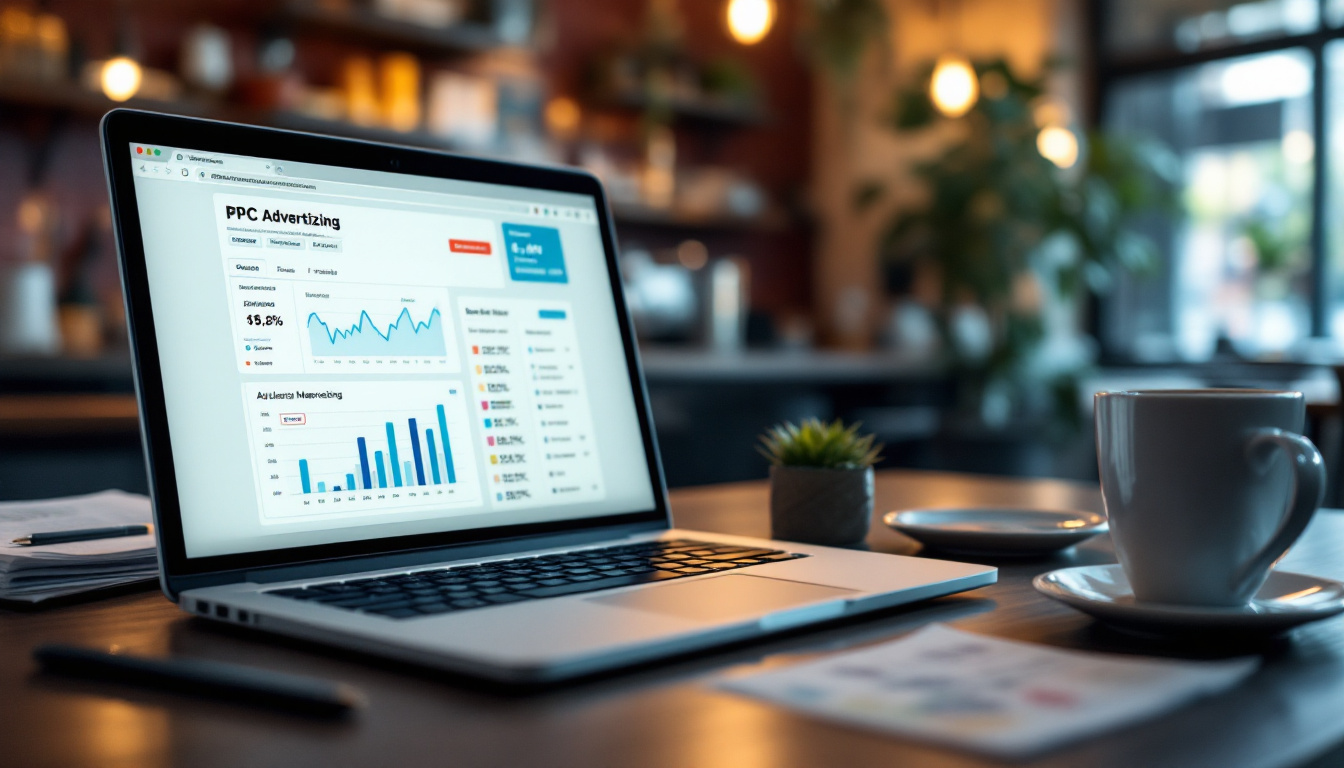Top PPC FAQs Answered for New Orleans, LA Businesses

Pay-per-click (PPC) advertising has emerged as a pivotal tool for businesses aiming to enhance their visibility and drive relevant traffic. As New Orleans, LA, continues to grow, local businesses are eager to harness the potential of PPC. This article delves into the most Frequently Asked Questions about PPC, offering insights that can help local enterprises thrive in the competitive marketplace.
What is PPC and how does it work?
PPC, or pay-per-click, is an online advertising model where businesses pay a fee each time one of their ads is clicked. Essentially, it’s a way of buying visits to your site rather than attempting to earn them organically. In the context of search engines, businesses bid on keywords relevant to their services, effectively competing for a spot on a search results page.

When a user searches for a term related to your business, your ad may appear, often at the top of the search results. If a user clicks on your ad, they are directed to your website, and you pay a predetermined amount for that visit. This model allows businesses to target potential customers actively searching for the products or services they offer.
Understanding the components of PPC
The primary components of PPC include keywords, ad copy, and landing pages. Choosing the right keywords is crucial; they should relate closely to your business and the needs of your target audience. Your ad copy must be compelling and informative to encourage clicks, while landing pages should provide a seamless transition from the ad, addressing user needs directly.
Moreover, platforms like Google Ads and Bing Ads play a vital role in facilitating these campaigns. They offer various tools and options to customize ad performance based on your specific goals and target demographics. Additionally, these platforms utilize sophisticated algorithms that consider factors such as ad relevance, expected click-through rates, and landing page quality to determine ad placements. This means that simply bidding higher on keywords isn't enough; your ads must also resonate with users and provide a valuable experience once they click through.
Another important aspect of PPC is the ability to track and analyze campaign performance through metrics such as click-through rates (CTR), conversion rates, and return on ad spend (ROAS). By leveraging these insights, businesses can make data-driven decisions to optimize their campaigns, adjusting bids, refining ad copy, or even experimenting with new keywords to enhance their visibility and effectiveness. This continuous improvement process is essential in the fast-paced digital landscape, where consumer behavior and market trends can shift rapidly.
Why is PPC important for local businesses?
PPC can be particularly impactful for local businesses in New Orleans, offering opportunities to connect with nearby customers. One of the significant advantages of PPC is its ability to target specific geographic areas. By utilizing location-based targeting features, businesses can ensure their ads are displayed to users within a particular radius of their brick-and-mortar locations. This means that a quaint café in the French Quarter can reach tourists exploring the area or locals looking for a cozy spot to enjoy their morning coffee.

Furthermore, New Orleans is known for its vibrant culture and unique local services, making it essential for businesses to stand out. PPC campaigns can help in achieving immediate visibility, allowing local businesses to gain a competitive edge. This is especially crucial for seasonal businesses or those operating in a highly competitive niche. For instance, a local tour company can leverage PPC to promote special tours during the Jazz & Heritage Festival, ensuring they capture the attention of visitors eager to experience the local music scene.
Driving immediate traffic
Unlike organic search engine optimization (SEO), which can take time to yield results, PPC offers instant visibility. As soon as a campaign is launched, ads become visible on search engines and can begin attracting traffic right away. This immediacy can be particularly beneficial during peak seasons or events in New Orleans, such as Mardi Gras, when local businesses need to maximize their outreach. The ability to quickly adapt ad copy and targeting strategies allows businesses to respond to real-time trends and consumer behavior, making their marketing efforts more effective.
Additionally, PPC allows for precise tracking of metrics and user engagement, enabling businesses to adjust their strategies on the fly based on what’s working and what isn’t. This level of insight is invaluable, as it empowers local businesses to refine their campaigns continuously. For example, if a particular ad promoting a local restaurant's special dish is performing exceptionally well, the business can allocate more budget to that ad or create similar variations to further capitalize on the interest. This data-driven approach not only enhances the effectiveness of individual campaigns but also contributes to long-term marketing strategies, ensuring that local businesses remain agile and competitive in a bustling marketplace.
How to select the best PPC platform?
Choosing the right PPC platform can significantly affect the success of your campaign. Some of the most popular platforms include Google Ads, Facebook Ads, and Bing Ads. When selecting a platform, consider the following factors:
- Your target audience: Understand where your audience spends time online. Google Ads is excellent for search intent, while social media platforms may be better for brand awareness.
- Your goals: If your objective is to drive immediate traffic, Google Ads might be the best option. However, for building brand loyalty, platforms like Facebook can engage customers through visual content.
- Your budget: Determine how much you’re willing to spend. Different platforms have varying cost structures, and understanding your budget will help you select the best platform.
Testing multiple platforms
It might also be wise to experiment with multiple platforms initially. Running simultaneous campaigns can provide insights into which platforms perform best for your specific audience and business type. A/B testing ads on different platforms can help optimize your return on investment (ROI).
In addition to A/B testing, consider the unique features each platform offers. For example, Google Ads provides robust keyword targeting and extensive reach through its search network, while Facebook Ads allows for advanced demographic targeting and retargeting options that can help you reach users who have previously interacted with your brand. Utilizing these features can enhance your campaign's effectiveness and ensure that your ads are reaching the right people at the right time.
Furthermore, keep an eye on industry trends and emerging platforms. New PPC options can arise that may better suit your needs, especially as consumer behavior shifts. Platforms like TikTok Ads are gaining traction for their ability to reach younger audiences through engaging video content. Staying informed about the latest developments in digital advertising can give you a competitive edge and help you adapt your strategy to maximize results.
Ultimately, the right platform will align with your marketing goals, target audience preferences, and available budget while providing tools for easy tracking and analytics.
What are the costs associated with PPC?
The costs of PPC can vary widely based on several factors, including the competitiveness of the chosen keywords, your industry, and the specific PPC platform. Generally, PPC campaigns operate on a bidding system, meaning that you place bids on keywords relevant to your business. The amount you pay can depend on both your bid and the quality of your ads.
Common cost factors include:
- CPC (Cost Per Click): This is the amount you pay each time a user clicks on your ad. In competitive markets, CPC rates can be higher.
- CPM (Cost Per Mille): Some platforms offer an option to pay based on impressions, which can be useful for brand awareness campaigns.
- Daily or monthly budget: You can set limits to control how much you spend, allowing for better financial management.
Unexpected costs
Additionally, there may be unexpected costs associated with PPC, such as costs for creating high-quality ad content or hiring professionals to manage your campaigns. It’s crucial to account for these aspects when planning your PPC strategy.
Another common consideration is the importance of ongoing optimization. Regularly reviewing ad performance and adjusting bids or ad copy may incur additional costs, but this continuous improvement is essential for maximizing ROI.
How to measure the success of your PPC campaigns?
Measuring the success of your PPC campaigns is essential for understanding their return on investment and guiding future strategies. Several key performance indicators (KPIs) can help gauge effectiveness:
- Click-Through Rate (CTR): This metric reflects the percentage of users who clicked on your ad after seeing it. A higher CTR indicates compelling ad copy and relevant targeting.
- Conversion Rate: This measures how many clicks actually result in desired actions, such as a purchase or sign-up. Monitoring conversion rates is crucial to determine if your ad is effectively driving sales.
- Cost Per Acquisition (CPA): This metric reflects how much you spend to acquire a customer through your PPC efforts. Understanding CPA can help assess the financial viability of your campaigns.
Utilizing analytics tools
Utilize analytics tools like Google Analytics and the reporting features in your PPC platform to track these metrics effectively. Regularly check performance reports to detect trends and patterns, allowing you to make data-driven decisions that enhance your campaigns over time.
In conclusion, understanding PPC and how to navigate its complexities is crucial for local businesses in New Orleans seeking to thrive in a dynamic marketplace. By addressing common FAQs and adhering to best practices, businesses can leverage PPC as a powerful tool to reach their target audience and meet their marketing objectives.

As a Google Ads expert, I bring proven expertise in optimizing advertising campaigns to maximize ROI.
I specialize in sharing advanced strategies and targeted tips to refine Google Ads campaign management.
Committed to staying ahead of the latest trends and algorithms, I ensure that my clients receive cutting-edge solutions.
My passion for digital marketing and my ability to interpret data for strategic insights enable me to offer high-level consulting that aims to exceed expectations.





























